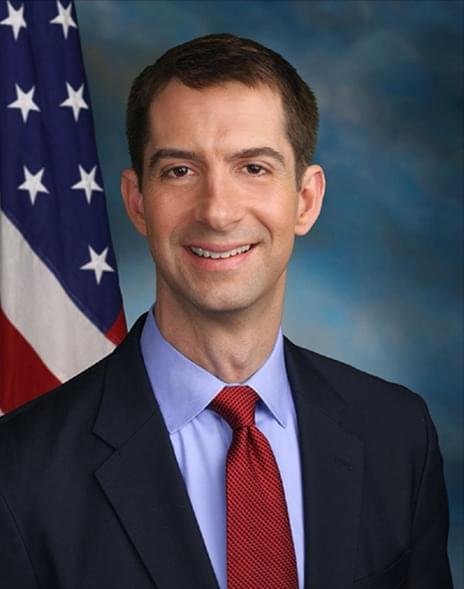By Drew Viguet
National Agricultural Law Center
U of A System Division of Agriculture
FAYETTEVILLE, Ark. — Does large-scale installation of solar panels on farms make the land unusable for other purposes?
Agrivoltaics, which is agricultural production under or around solar panels, will be discussed during the National Ag Law Center's webinar on Aug. 21, 2024. (U.S. Department of Energy photo by Merrill Smith)
“Solar energy development is increasing rapidly, which commonly involves large-scale solar projects on rural and agricultural lands that can take that land out of agricultural production,” Harrison Pittman, director of the National Agricultural Law Center, said. “Agrivoltaics offers the potential of keeping the land in production while also using it for solar.”
“Agrivoltaics,” as defined by the U.S. Department of Energy, is agricultural production under or adjacent to solar panels. This agricultural production can include crop production, livestock production or pollinator habitats.
In September 2021, the DOE released its Solar Futures Study, which looks at the role of solar in decarbonizing the U.S. electric grid. One finding from the study is that much land for ground-based solar development is needed to accomplish this: approximately 0.5 percent of contiguous U.S. surface area. The report notes that to meet this need, photovoltaic systems, or solar panels, could be installed on farming or grazing areas.
Key principles of agrivoltaics, including the impact of agrivoltaics on agricultural production, is the focus of the Aug. 21 NALC webinar, “Can Agriculture and Solar Co-Exist? Exploring the Promise and Challenge of Agrivoltaics.” The webinar will be presented by Peggy Kirk Hall, director of The Ohio State University Extension Agricultural and Resource Law Program, and Jesse Richardson, professor of law and lead land use attorney at West Virginia University College of Law.
The webinar begins at 11 a.m. Central/Noon Eastern. Registration is free of charge and available online.
“We’ve seen initiatives and mandates across the country geared toward boosting renewable energy to meet energy demands,” Hall said. “Solar energy is often a part of those initiatives, which raises many concerns for producers and communities as well, such as cost, impact on agricultural production, loss of prime and unique soils, and community land use goals. The installation of large-scale solar panels can limit that land’s ability to be used for other agricultural needs, but it doesn’t necessarily have to.”
In 2023, the agrivoltaic market size was valued at $5.5 billion, according to Global Market Insights, and that number is expected to grow at a compound annual growth rate of almost 6 percent from 2024 to 2032.
Richardson said that he and Hall will explore agrivoltaics from a variety of angles, shedding light on its opportunities and challenges.
“As renewable energy is an increasingly popular topic at local, state and federal levels, these conversations will inevitably become more frequent,” Richardson said. “We aim to inform the discussion on agrivoltaics, looking at how things are now and possible impacts for the future.”
All webinars in the NALC Webinar Series are recorded and archived on the NALC website.
For information about the National Agricultural Law Center, visit nationalaglawcenter.org or follow @Nataglaw on X. The National Agricultural Law Center is also on Facebook and LinkedIn.
For updates on agricultural law and policy developments, subscribe free of charge to The Feed, the NALC’s twice-monthly newsletter highlighting recent legal developments facing agriculture.





















